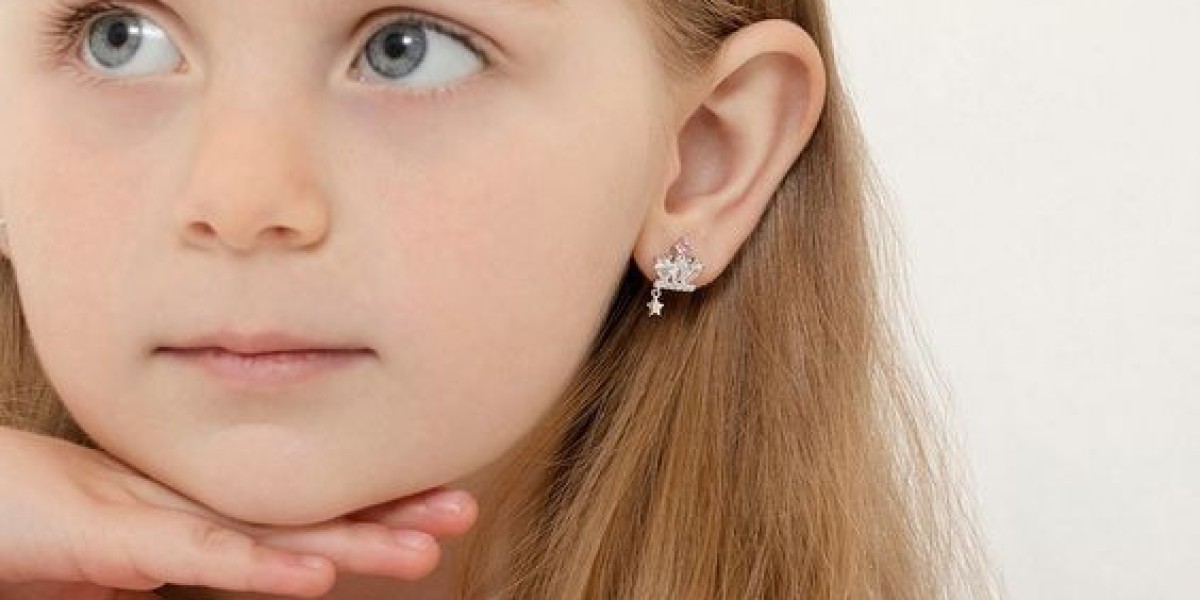Ear piercings for babies can be a special milestone for many parents, marking a memorable moment in their child’s early years. However, choosing to have your baby’s ears pierced involves careful consideration to ensure their safety and comfort. In this guide, we’ll provide essential advice on ear piercings in Riyadh for babies offering insights into the process, safety considerations, and aftercare to help you make an informed decision.
Understanding the Basics of Baby Ear Piercings
Why Consider Ear Piercings for Babies?
Ear piercings can be a meaningful tradition for some families, symbolizing cultural practices or personal preferences. For others, it’s a way to start a new fashion trend early on. Regardless of the reason, understanding the basics of the procedure and its implications is crucial.
Early Ear Piercings
- Cultural Significance: In many cultures, ear piercings are a common tradition that starts at a young age.
- Fashion and Style: For some parents, it’s an early introduction to personal style.
What to Know Before Getting Ear Piercings
Before proceeding with ear piercings in Riyadh for babies, there are several important factors to consider:
- Age Recommendations: Many experts recommend waiting until a baby is at least 6-12 months old, as their immune system is more developed and their ears are more robust.
- Pain and Discomfort: Understand that the procedure may cause temporary discomfort. Babies may react differently to pain, and it’s important to be prepared for potential crying and fussiness.
Choosing the Right Time for Baby Ear Piercings
Ideal Age for Piercings
The ideal age for ear piercings in Riyadh for babies often depends on personal preference and cultural practices. However, many parents choose to wait until their baby is a bit older. Here’s why:
- Immune System Maturity: At around 6-12 months, babies’ immune systems are better able to handle potential infections.
- Healing Time: Older babies may have a slightly easier time managing the healing process.
Timing Considerations
Consider the following when scheduling your baby’s ear piercing:
- Health Status: Ensure your baby is in good health before the procedure.
- Routine and Environment: Choose a time when your baby is generally calm and not undergoing significant changes in routine.
Finding a Reputable Location for Ear Piercings in Riyadh
Importance of Professional Services
When looking for ear piercings in Riyadh for babies, choosing a reputable location is crucial. Here’s what to look for:
- Qualifications and Experience: Ensure that the staff are experienced in performing ear piercings on babies. Check their credentials and reviews from other parents.
- Cleanliness and Safety: The location should adhere to high standards of cleanliness and sterilization to minimize the risk of infection.
What to Ask Before the Procedure
Before proceeding, ask the following questions:
- Sterilization Procedures: Inquire about how tools and equipment are sterilized.
- Aftercare Instructions: Ensure you receive clear instructions on how to care for your baby’s ears post-piercing.
- Emergency Protocols: Ask about their protocols in case of complications or allergic reactions.
Preparing Your Baby for the Procedure
Comfort and Reassurance
Preparation is key to making the piercing experience as smooth as possible for your baby:
- Calm Environment: Keep the environment calm and soothing to reduce your baby’s stress.
- Distraction Techniques: Bring along a favorite toy or comfort item to help distract your baby during the procedure.
What to Expect During the Piercing
- Procedure Duration: The actual piercing process is quick, usually lasting just a few seconds.
- Reaction: Be prepared for a brief moment of discomfort or crying, which is normal and typically subsides quickly.
Aftercare for Baby’s Ear Piercings
Immediate Post-Piercing Care
After the procedure, proper care is essential to prevent infection and ensure healing:
- Cleanliness: Gently clean the area around the piercings with a recommended antiseptic solution. Avoid using alcohol or hydrogen peroxide, as these can be too harsh for sensitive skin.
- Avoid Touching: Prevent your baby from touching or pulling on their earrings to avoid irritation or infection.
Long-Term Care and Maintenance
- Regular Cleaning: Continue to clean the piercings regularly according to the aftercare instructions provided.
- Monitoring for Infections: Watch for signs of infection, such as redness, swelling, or discharge. Contact a healthcare provider if any concerning symptoms arise.
When to Seek Medical Advice
- Persistent Discomfort: If your baby seems to be in constant pain or discomfort, consult a healthcare professional.
- Signs of Infection: Redness, swelling, or pus may indicate an infection that requires medical attention.
Addressing Common Concerns
Pain and Discomfort
Understand that while the procedure is quick, it may cause temporary discomfort. Here’s how to manage it:
- Pain Relief: A soothing cuddle or a gentle rub can help comfort your baby immediately after the piercing.
- Calm Environment: Creating a calming environment can help soothe your baby and ease their distress.
Risk of Infection
Proper aftercare is crucial to minimizing the risk of infection:
- Follow Instructions: Adhere to the aftercare instructions carefully to prevent complications.
- Monitor the Piercings: Keep an eye on the piercings for any signs of infection and consult a healthcare provider if needed.
Conclusion
Choosing to get ear piercings in Riyadh for babies involves careful planning and consideration. By understanding the importance of timing, selecting a reputable location, and following proper aftercare, you can ensure a smooth and safe piercing experience for your baby. This guide provides essential advice to help you navigate the process with confidence and care, making the experience as positive as possible for both you and your little one.








